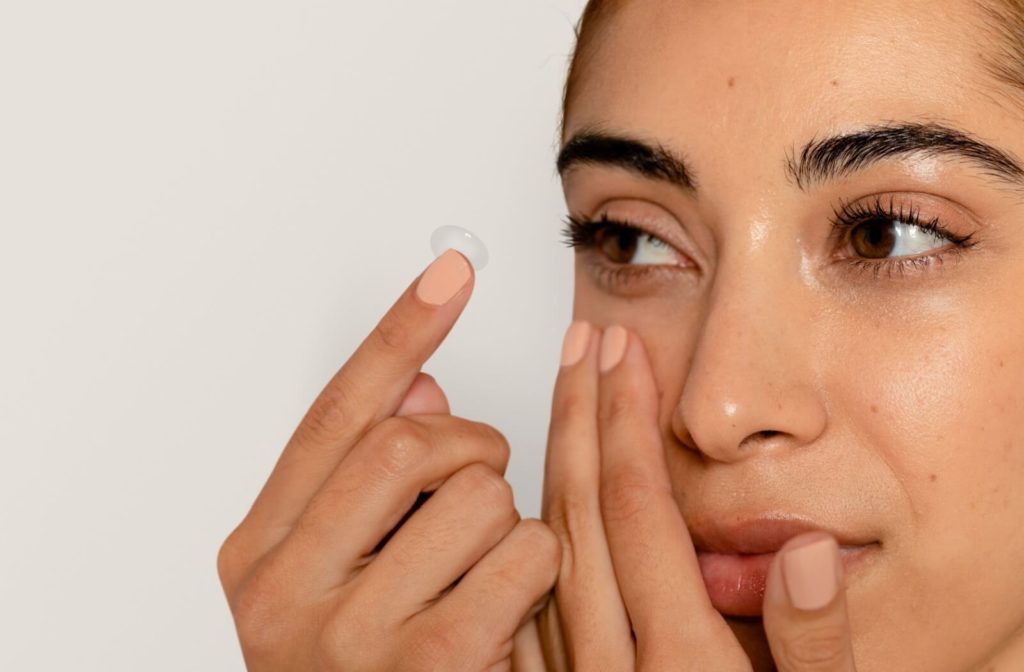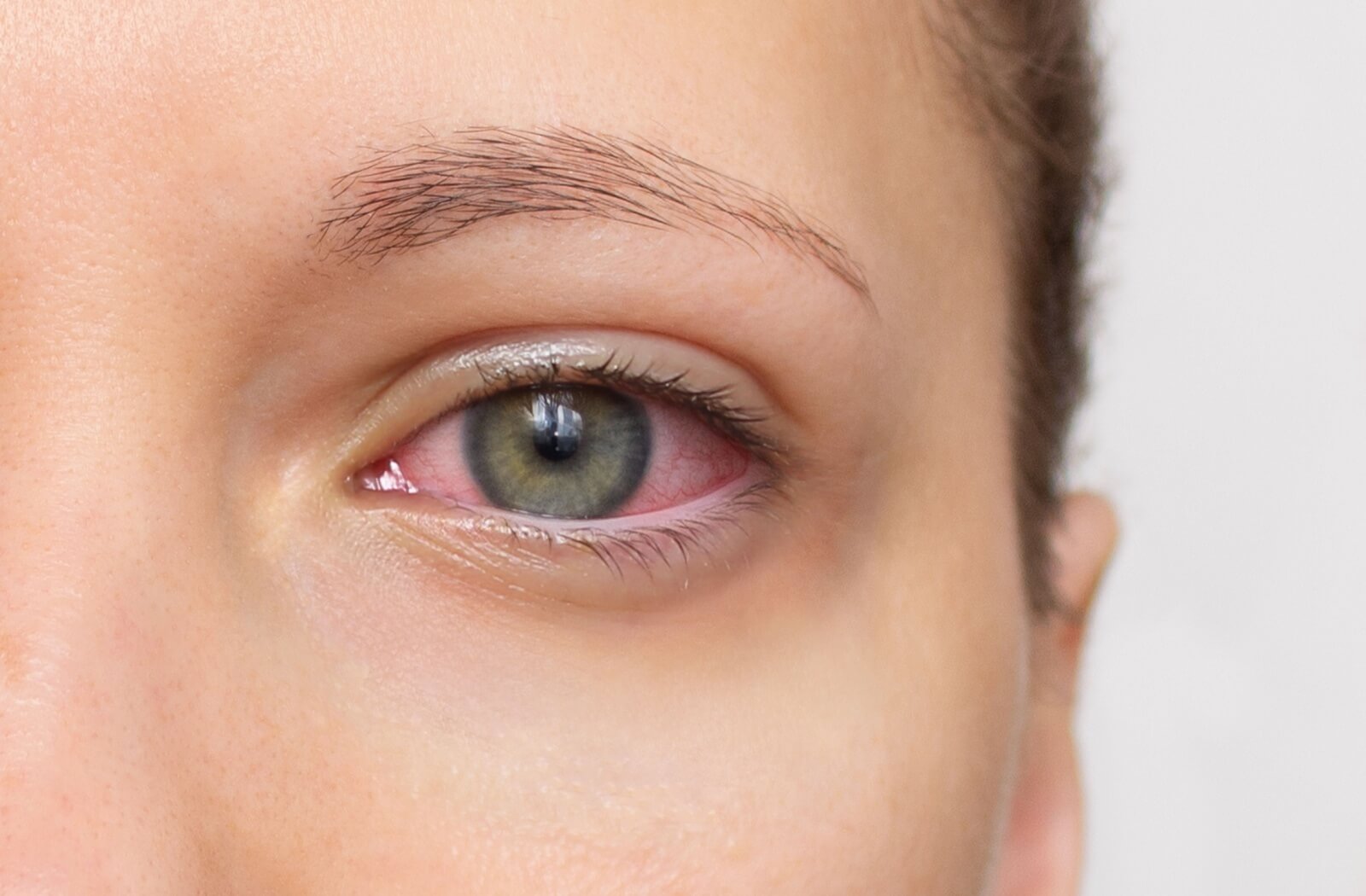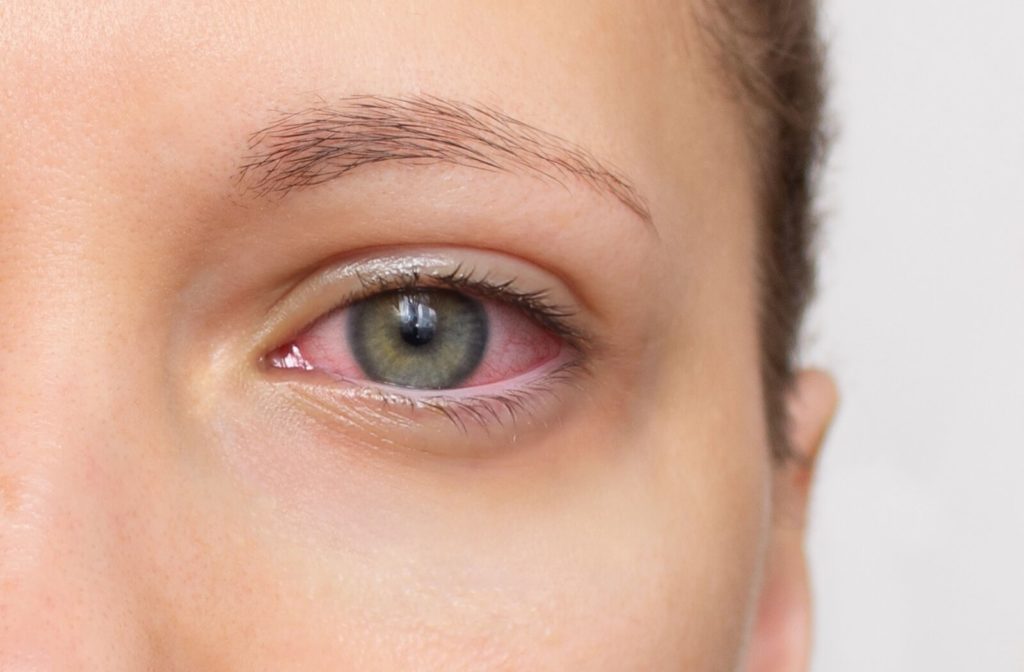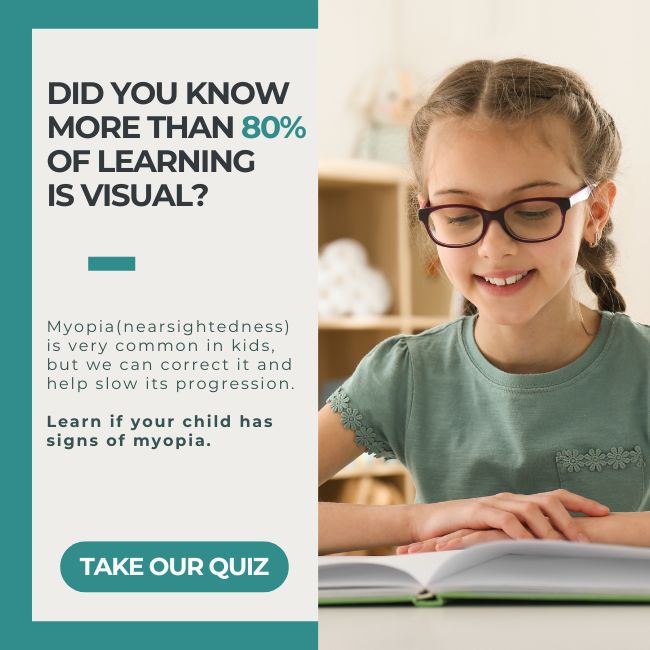Contact lenses can be a practical alternative to glasses, providing clear vision without the hassle of frames. However, they may sometimes exacerbate dry eye symptoms, making all-day comfort a challenge.
If you prefer contact lenses, it’s important to manage dry eye symptoms effectively—whether by using lubricating eye drops, taking regular breaks from digital devices, or trying different lens types.
Regular eye exams with the professionals at Insight Eyecare are vital for preserving both your eye health and comfort.
Understanding Dry Eye: Causes, Symptoms, & Management
What is Dry Eye?
Dry eye is a common condition that occurs when your eyes don’t produce enough tears or produce poor-quality tears. Tears are essential for maintaining the health of the front surface of the eye and providing clear vision. When tear production and drainage are not in balance, it can lead to discomfort and potential vision problems.
Causes of Dry Eye
Several factors can contribute to dry eye, including:
- Aging: As we age, tear production tends to diminish, which can lead to dry eye symptoms.
- Environmental factors: Exposure to smoke, wind, and dry climates can increase tear evaporation, leading to dry eyes.
- Screen time: Prolonged use of digital devices reduces blinking, which can exacerbate dry eye symptoms.
- Medical conditions: Conditions such as diabetes, rheumatoid arthritis, and thyroid disorders can contribute to dry eye.
- Medications: Certain medications, including antihistamines, decongestants, and antidepressants, can affect tear production.
- Contact lens wear: Contact lenses can interfere with the natural tear film, leading to or worsening dry eye symptoms.
Symptoms of Dry Eye
Common symptoms include:
- A stinging, burning, or scratchy sensation in the eyes
- Sensitivity to light
- Redness of the eyes
- A sensation of having something in your eyes
- Difficulty wearing contact lenses
- Difficulty with nighttime driving
- Watery eyes, which is the body’s response to the irritation of dry eyes
- Blurred vision or eye fatigue
General Management Strategies
- Artificial tears: Over-the-counter lubricating eye drops can help to supplement natural tear production.
- Lifestyle adjustments: Take regular breaks from screens, increase humidity in the air with a humidifier, and wear sunglasses to protect against wind and sun.
- Dietary supplements: Omega-3 fatty acids found in fish oil can help improve the composition of tears.
- Medical treatment: In more severe cases, prescription medications or procedures may be necessary to manage dry eye symptoms.
- Bruder heat masks: By gently heating and placing these masks over your eyelids, they help dissolve blockages in the meibomian glands. This process assists in producing the essential oils needed to maintain a stable tear film.
Dry Eye & Contact Lenses

Contact lenses can complicate dry eye management due to their interaction with the tear film. Lenses can absorb moisture from the eyes, leading to increased dryness and discomfort. Additionally, reduced blinking when using devices can exacerbate these symptoms, as contact lenses already reduce blink frequency.
Solutions for Contact Lens Wearers
- Lubricating drops: Use contact lens-compatible eye drops to keep the eyes moist throughout the day.
- Lens type: Consider switching to lenses designed for dry eyes, such as silicone hydrogel lenses, which allow more oxygen to reach the eyes.
- Wearing schedule: Limit wearing time and give your eyes a break by wearing glasses part-time.
- Follow professional advice: Regular eye exams are crucial for monitoring eye health and ensuring that your contact lenses are suitable for your condition.
By understanding the causes and management of dry eye, especially in the context of contact lens use, individuals can take proactive steps to maintain eye comfort and health. Always consult with eye care professionals for personalized advice and treatment options.
Explore Alternative Lens Options
If you are experiencing persistent dry eye symptoms, Insight Eyecare suggests exploring lenses designed specifically for dry eye relief.
Daily disposable lenses may be advantageous as they are replaced daily, reducing the accumulation of deposits that can irritate your eyes. Certain lenses are crafted from materials that increase oxygen permeability, which helps alleviate dryness.
Seek Professional Eye Care Guidance
Addressing dry eye effectively requires a customized approach. At Insight Eyecare, our professionals provide personalized advice and treatment solutions tailored to your specific needs.
A comprehensive eye exam can uncover the underlying causes of your dry eye and guide you to the most effective remedies, whether that involves adjusting your lens type or exploring alternative treatments.
Specialized Solutions for Dry Eye Management with Contact Lenses
Managing dry eye can be particularly challenging for contact lens users, but with the professional guidance of Insight Eyecare, it becomes manageable. Our eye care specialists are committed to helping you alleviate these symptoms effectively.
At Insight Eyecare, we recommend proactive strategies such as using lubricating eye drops, maintaining the cleanliness of your contact lenses, and exploring advanced treatment options. These measures make sure that you can enjoy the benefits of contact lenses without the discomfort of dry eyes.
Schedule your appointment with Insight Eyecare today for a personalized dry eye management plan and contact lens consultation. Our skilled team employs quality eye care technologies to deliver solutions tailored specifically to your vision and comfort needs.







